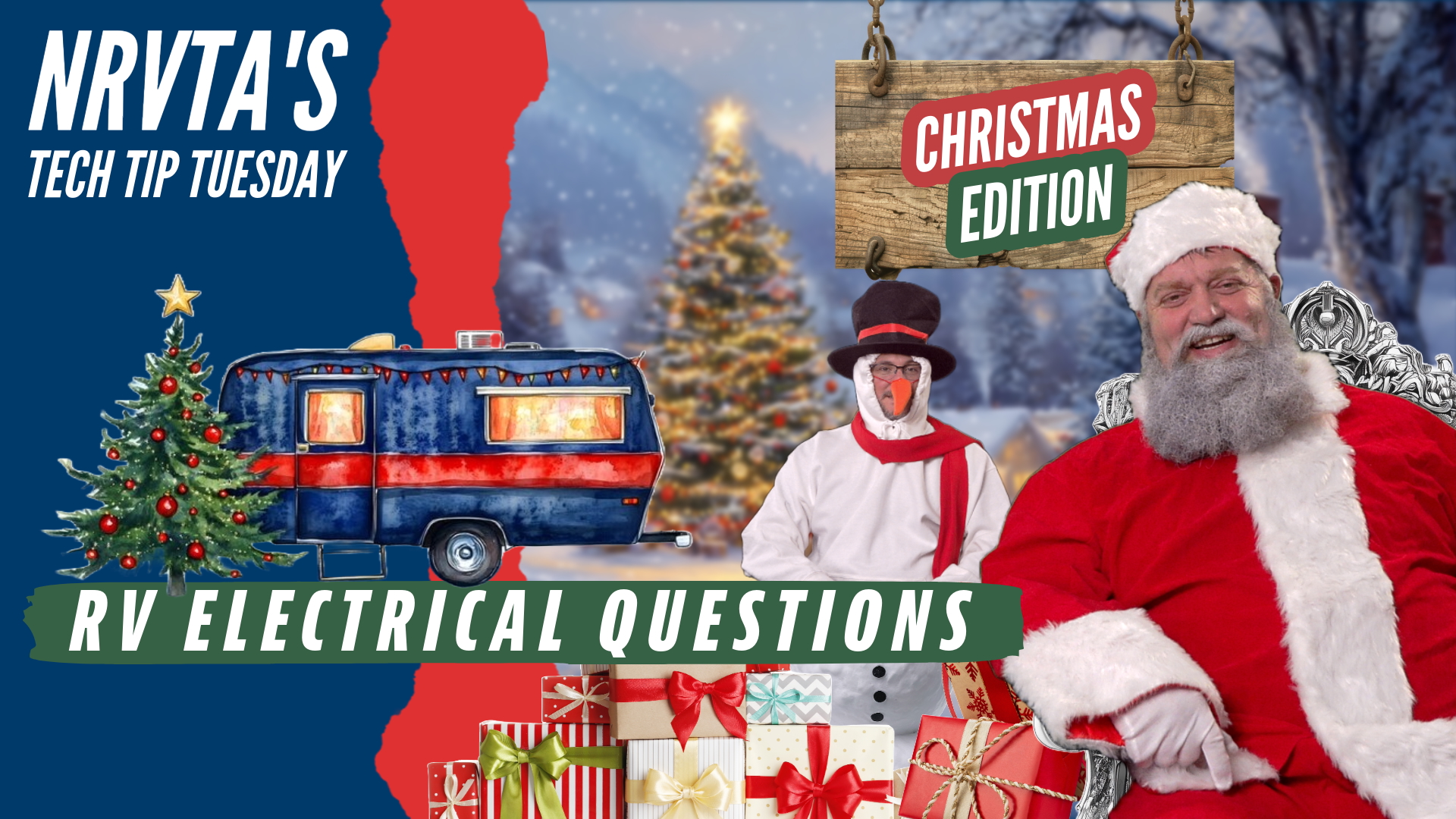Get your RV Technician Certification in as little as 5 weeks!

🎄 Ho ho ho! It’s Santa Todd here, bringing you some holiday cheer and solutions to your RV electrical questions. Whether you’re decking the halls of your RV or just staying cozy this winter, these tips are for you. Let’s dive in!
Powering Both Legs of a 50-Amp Service
A Class A RV owner shared a clever idea to power their second leg of 50-amp service using a Bluetti 2,000-watt power source. Here’s the breakdown:
- The Idea: Use a dog bone adapter to bridge the Bluetti power output to the unused leg of the 50-amp panel.
- The Problem: Dog bone adapters combine both legs, meaning the Bluetti would end up powering both sides of the panel. This can overload the system and create unwanted power drains.
- The Solution: Instead of this setup, consider redirecting the fridge circuit to your sub-panel powered by your onboard inverter. If that’s not an option, use an extension cord to connect the fridge directly to an outlet on the inverter circuit. Keep it simple and safe!
Plugging into a 15-Amp Garage Outlet
Can you safely power your RV from a standard garage outlet with a 15-amp reducer? The short answer: Yes, with caution.
- Key Tips:
- Avoid running high-demand appliances like air conditioners or microwaves.
- Check for other devices on the same circuit. Most garage outlets are daisy-chained with others, limiting available power.
- Be aware of GFCI outlets, which may trip when connecting your RV.
Stay within the circuit’s capacity, and you’ll be fine for light-duty use like lights and charging batteries.
Using Extension Cords with Heavy Loads
A travel trailer owner asked if they could run a 1500-watt space heater, microwave, and other appliances on a 14- or 12-gauge extension cord.
- The Verdict: Don’t risk it! Here’s why:
- A 12-gauge cord is rated for 20 amps, while 14-gauge cords handle even less.
- High-demand devices like space heaters and microwaves can easily overload smaller cords, leading to overheating and potential fire hazards.
- The Best Option: Always use your 30-amp RV power cord and plug into a proper 30-amp outlet for safety and sufficient power.
Quick Summary for a Safe RV Holiday Season
- Power Redistribution: Reroute circuits or use inverter-powered outlets instead of risky DIY setups.
- Garage Outlets: Use sparingly, and limit power-hungry appliances.
- Extension Cords: Stick to the proper RV power cord to avoid overloading and overheating.
Santa Todd’s rule of thumb? Always prioritize safety and simplicity over convenience. Have more questions about RV electrical setups or other RV tips? Drop them in the comments or send them our way!
Stay powered, stay warm, and have a holly jolly RVing season! 🚐🎅
Get Registered Today!
Talk to a student advisor to learn more!